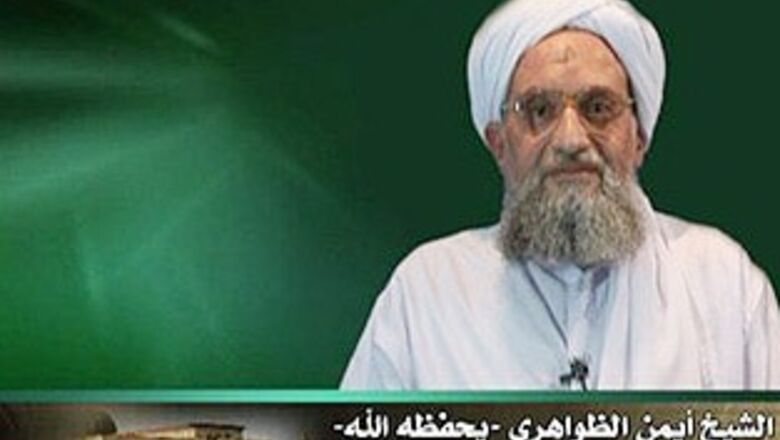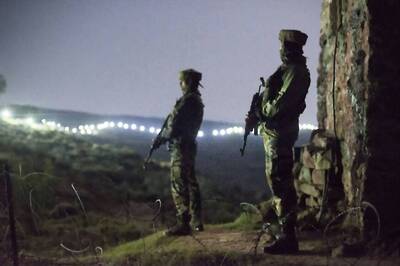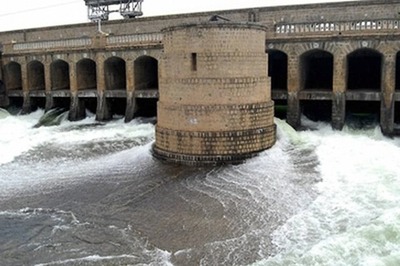
views
Washington: Al Qaeda leaders no longer feel safe in Afghan-Pakistan border areas, where they face heavy US and Pakistani pressure and their local welcome has worn out, CIA chief Michael Hayden said.
Hayden's comments to reporters as he prepares to leave his post underscored a growing Bush administration confidence that al Qaeda's leadership has been crippled, partly by a military campaign that Washington does not acknowledge.
Hayden also said in the wide-ranging discussion he believed Iran was nearing a decision on whether to proceed with development of a nuclear weapon.
He stood by his defense of CIA waterboarding and said that regardless of whether the agency's harsh interrogations will be judged worth the widespread condemnation, they worked.
''The agency did none of this out of enthusiasm. It did it out of duty, and it did it with the best legal advice,'' he said yesterday. ''I am convinced that the program got the maximum amount of information. ... I just can't conceive of any other way.''
Hayden said a disappointment of his 2 1/2-year term was that al Qaeda leader Osama bin Laden was still at large. But he said bin Laden and top lieutenants were no longer secure in the Pakistan mountain hide-outs believed to be hiding them.
''The great danger was that -- I'm going to use a little euphemism here -- the border region between Pakistan and Afghanistan was a safe haven for al Qaeda,'' Hayden said. ''It is my belief that the senior leadership of al Qaeda today believes that it is neither safe, nor a haven. That is a big deal in
defending the United States.''
An audio message from bin Laden this week may have been intended in part simply to show he was still alive, Hayden suggested.
''What we and our Pakistani allies have been able to do have changed the equation there,'' he said. US forces in Afghanistan launched about 30 missile strikes in Pakistan in 2008, according to a Reuters tally.
The US government does not acknowledge the strikes, but eight senior al Qaeda leaders have died in the region since July, a US counterterrorism official said this week.
Pakistan has denounced the raids as violations of territorial sovereignty. But Pakistani Ambassador Husain Haqqani said in Washington that Pakistani military cooperation had begun reducing militant infiltration into Afghanistan.
''Instead, now there is a reverse infiltration of Taliban and jihadis from Afghanistan coming into Pakistan to try and protect bases,'' in tribal areas,'' Haqqani told a think tank in Washington.
Residents in the border areas have also begun to make al Qaeda feel unwelcome, Hayden said.
'HE'S HIDING'
Hayden said it was likely that bin Laden's deputy, Ayman al-Zawahri, would be caught before the al Qaeda leader, because Zawahri was more active and more involved in operations.
''I asked our counterterrorism chief, how come we haven't found him (bin Laden). He said, 'Because he's hiding.' And there's a lot of wisdom in that. He's spending a great deal of energy protecting himself,'' Hayden said.
Hayden's CIA term began in 2006 and has largely been defined by controversy over the agency's programs to capture and question terrorism suspects. That includes its use of the simulated drowning technique known as waterboarding.
The waterboarding was limited to three high-value terrorism suspects and discontinued in 2003, Hayden has said.
President-elect Barack Obama's nominee for attorney general, Eric Holder, told a Senate confirmation hearing yesterday he considered waterboarding to be torture.
Obama has signaled he did not intend to prosecute agents over the CIA programs, a view Hayden said he welcomed.
Hayden said he briefed Obama last month on the CIA's covert operations, including its programs for detention and interrogation. He called Obama an ''avid customer'' of intelligence.
Iran likely will decide soon whether to press ahead with a suspended nuclear weapons program, Hayden said. Its stocks of low-enriched uranium are rising, but the costs of maintaining the enrichment program in the face of international isolation and sanctions would soon force a reckoning, he said.
He counted as a major success the CIA's identification of a suspected covert Syrian nuclear plant. The plant was destroyed by an Israeli air strike in 2007.
Hayden said the CIA would abide by any government limits on its methods. But he said it worked best when it bumped right up against the limits -- and indicated that could be his legacy.
''When the history of this agency for this period is written, the last thing you are going to say is that it was risk-averse -- trust me,'' he said.




















Comments
0 comment